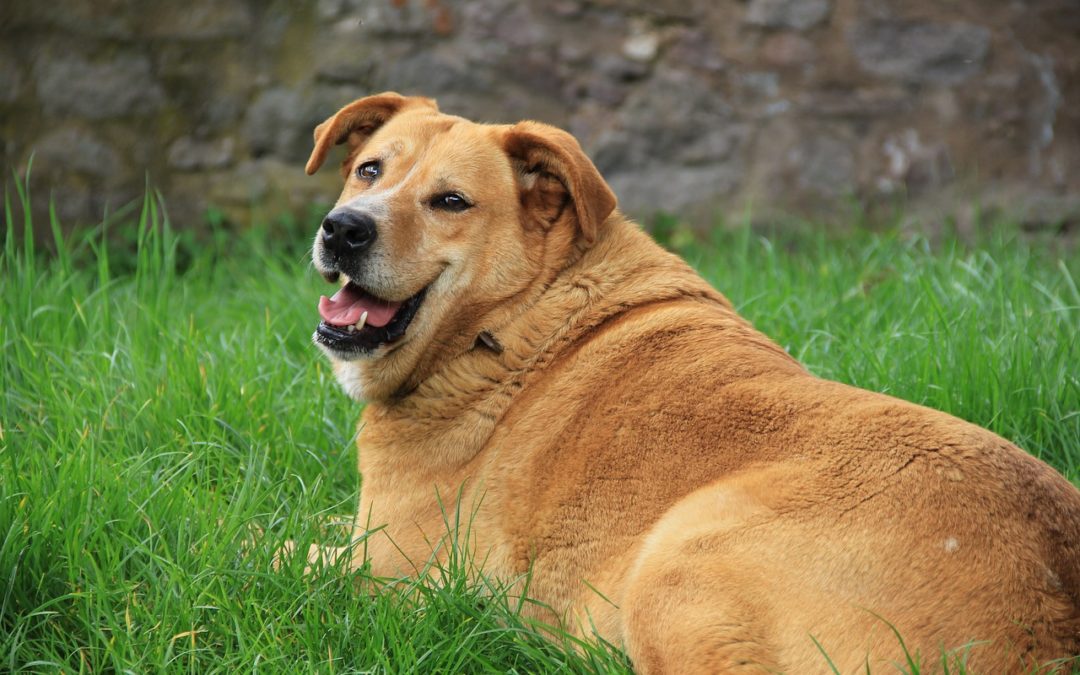
Many pets are pampered beyond measure but too much of a good thing can be bad, especially when it comes to food. Studies show that over 50% of dogs are overweight (pretty worrying isn’t it?) and as a result, a large percentage of our dogs are at risk of diseases including diabetes, high blood pressure, kidney and heart disorders and crippling arthritis.
If your pooch is overweight, the following tips will help your pet to lose weight and stay fit and healthy in a sustainable way — meaning the kilos your pet sheds won’t creep back on.
Daily Calorie Intake
Get advice from your vet on how many calories your dog requires each day. This will give you a more accurate idea of your pet’s daily food requirements. While feeding guides on dog food bags are a good guide, the actual needs will differ for each individual according to their age, activity levels and whether they are sterilised or not. Older pets that have been sterilised and spend their day lolling on the couch may require up to 20-30% less than that recommended on the feed bag. The sweet spot is often determined over time so work with the veterinary staff to assess your pet’s lifestyle and metabolism as well as monitor weight changes over a number of weeks.
Measure Out Meals
A pet owner’s greatest weapon in the war on weight is the trusty measuring cup. Rather than just filling up your pet’s bowl or guessing how much you are serving, use a measuring cup to accurately measure out each meal serving according to his daily calorie requirements determined above. This will ensure that your pet is getting just enough food and not too much. Refrain from leaving a full bowl of food out permanently so that they can help themselves all day long. In terms of weight gain, this is a recipe for disaster, especially for a pooch that loves his food.
Healthy Treats
Treats, especially junk-food treats, can quickly pack on the pounds. If you do give your pet treats throughout the day, make sure they are healthy and not too high in calories. Choose healthy low-fat, sugar-free treats that will not show up on your pooch’s belly and end up being detrimental to his health. Treats that serve an additional purpose, such as low-calorie dental chews that clean the teeth, are beneficial as they kill two birds with one stone, so to speak. If you do give your pet treats, make sure that you include these additional calories with the total daily calorie intake. Not taking these additional calories into account could end up sabotaging your efforts. Better still, if you must hand out treats, break them up into teeny-weeny little pieces and only dish them out as rewards for good behaviour.
Healthy Alternatives
Commercially packaged treats are usually highly processed, unhealthy and expensive. Why not try giving your fur-baby healthy snacks such as slices of apple, celery or carrots, green beans, broccoli, or even an ice cube to suck on. These vitamin-packed titbits offer a healthy alternative to highly processed snacks and won’t cost nearly as much. Just be careful that you only give small portions of fruits such as apple and banana as they are high in fructose sugars. Unsalted popcorn is another healthy option that pets love, and it is cheap and easy to make.
Low Carb Diet
To speed up weight loss in pets, a low carbohydrate diet is recommended. Many dog foods on the market consist of at least 60% carbohydrates. Check the label on the bag to analyse the composition of the food you are feeding your pet. Your pet’s diet should be balanced with an equal ratio of protein to carbohydrates. For weight loss, low carb / high protein diets may be better still. Consult your veterinarian for advice before switching diets. Pets with medical issues, such as kidney problems, may need to be put on a diet specially tailored to their needs.
Daily Exercise
There is nothing better than regular daily exercise to help your furry friend lead a long healthy pain-free life. Regular exercise will improve the health of your dog’s heart, boost his immune system and prevent behavioural issues associated with inactivity and boredom. Taking your dog out for a 30-minute brisk walk once or twice a day will do you both a world of good.
Health Supplements
Adding a few dietary supplements to your pets’ diet can help boost his health and fitness. Beneficial supplements such as omega-3 fatty acids are rich in anti-oxidants that can prevent a number of common diseases. They are also thought to help prevent arthritis, which in turn may lead to more activity that will promote weight loss. Studies have indicated that the supplement L-carnitine is effective at promoting weight loss and lean muscle development. Check with your veterinarian to see if these supplements, or others, are likely to benefit your pet.
Ultimately, the health and fitness of your pet rests on your shoulders. Just as you need to take steps to keep yourself fit, trim and healthy, you also need to take responsibility for your pet’s weight. Feeding the appropriate food in the correct quantities is essential. But so is limiting treats and encouraging daily exercise. By following this simple plan outlined above, you will soon get your pet back in shape. You may even improve your own fitness while you are at it!